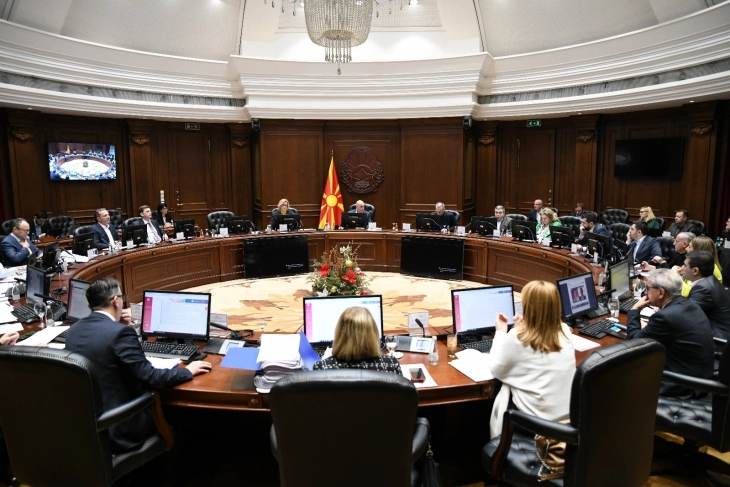Gov't discusses motion on amendments to law on restrictive measures and other laws
- The Government at its session on Tuesday discussed upon proposal of the Ministry of Foreign Affairs a motion on amendments to the Law on Restrictive Measures, expressing unanimously by consensus the political will to submit a bill to the Parliament, which will be aligned with national legislation, it said in a press release.

Skopje, 16 January 2024 (MIA) - The Government at its session on Tuesday discussed upon proposal of the Ministry of Foreign Affairs a motion on amendments to the Law on Restrictive Measures, expressing unanimously by consensus the political will to submit a bill to the Parliament, which will be aligned with national legislation, it said in a press release.
The Government also announced that changes will be initiated to other laws, which will be reflected by the changes to the Law on Restrictive Measures.
Earlier on Tuesday, Foreign Minister Bujar Osmani said in a Facebook post that the Government approved amendments to the Law on Restrictive Measures by including US and UK blacklists as grounds for sanctioning by institutions in North Macedonia.
FM Osmani told a press briefing last week that the Ministry of Foreign Affairs is starting a public debate on proposed amendments to the Law on Restrictive Measures, which would introduce US and UK legal acts as a basis for local courts to order legal sanctions be levied against individuals and companies.
"The Law on Restrictive Measures regulates imposing, modifying and terminating restrictive measures," FM Osmani said, adding that the basis for those sanctions until now were United Nations Security Council resolutions, European Union legal acts, decisions of several international organizations the country was a member of, and requests of other countries' competent authorities regarding terrorism and weapons proliferation.

"What we propose in these amendments to the Law," Osmani said, "is to add the legal acts of the United States and the legal acts of the United Kingdom as a basis for imposing restrictive measures in the state."
Osmani said besides international security and democracy threats, the updated law would sanction corruption, abuse of office and hybrid threats.
Also, he said, after receiving evidence of such wrongdoing, the Prosecutor's Office would need to immediately launch an investigation and if the probe led to charges being filed in a court of law, the updated Law on Restrictive Measures would temporarily prevent the individual from holding public office or the company from participating in public procurement.
Photo: Government of the Republic of North Macedonia







